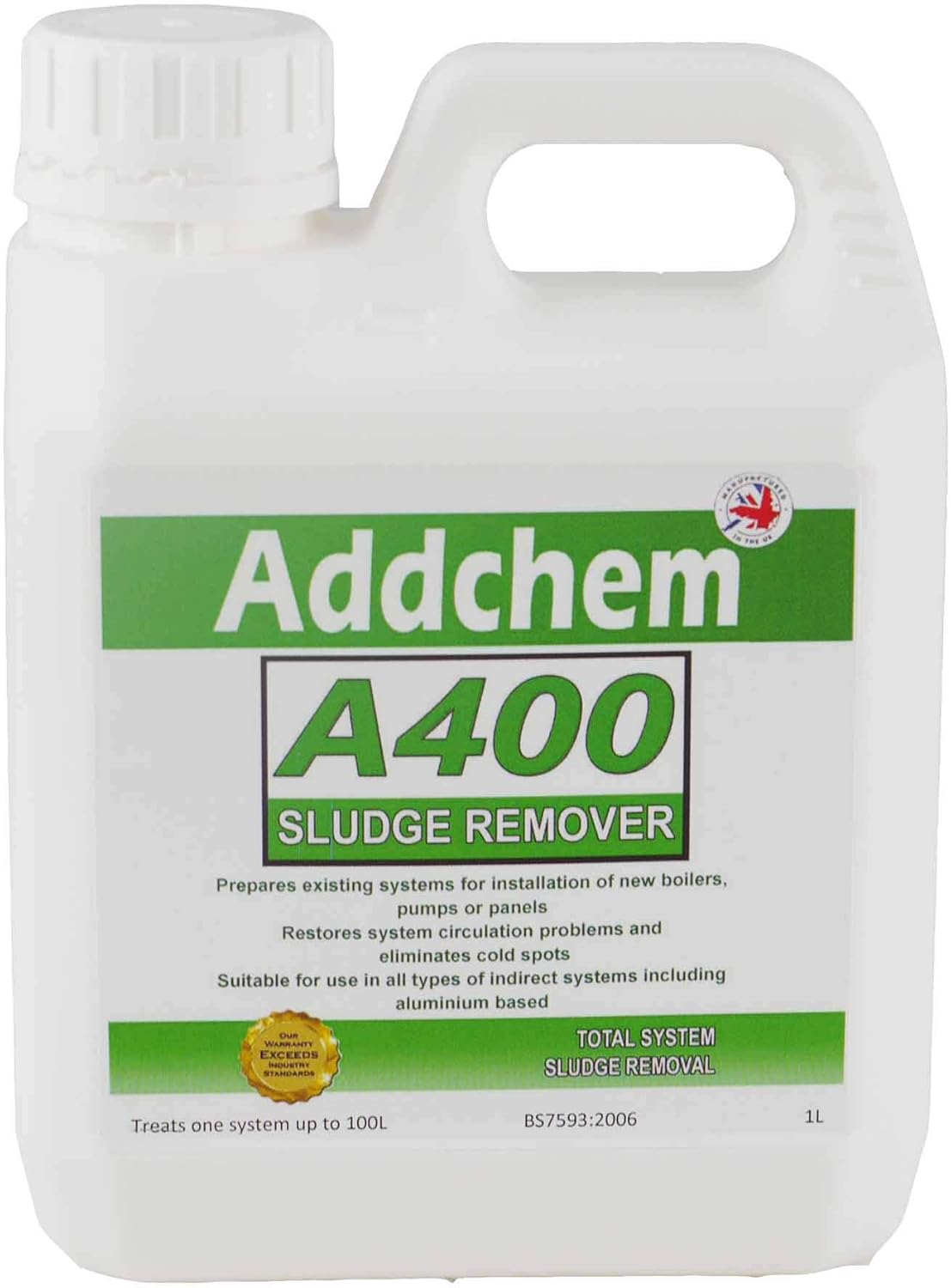
Concentrated Sludge Remover - Boiler Central Heating System (A400)
FREE Shipping
Concentrated Sludge Remover - Boiler Central Heating System (A400)
- Brand: Unbranded

Description
Central heating sludge remover or radiator sludge remover as it is also called is a chemical treatment that breaks down this build up. It is a good idea to add this but also for you to get a power flush of the system too in conjunction with the remover. New radiators The second step, and probably a more important one, is to fit a magnetic sludge system filter. The heating system’s dirty water contents are constantly circulating around your the radiators, towel rails, and pipework. A magnetic system filter will catch most the particles in the sludge. Before carrying any work, you must make sure that the boiler is switched off and you should isolate the electrical supply. You should also allow the system to cool if it has been running recently. With a vented system you will have a feed and expansion cistern or header tank and you will need to close off the water supply from here. With a sealed system water is added only by opening the filling loop. This is closed under normal conditions – so there is no feed to be turned off. Poor water quality is one of the most common causes of sludge build-up in central heating systems. If the water used in the system is not properly treated, it can contain high levels of dissolved minerals and other impurities. Sludgy water will cause central heating problems and result in requiring an emergency plumber because, the sludge is heavier than water and there is more friction in sludge, than there is in water. Will central heating sludge cost me more in the central heating
It is estimated that around 20% of boilers will break in any given year. And central heating sludge is the cause of a large proportion of these. A sludge build-up in either your central heating system or your boiler can cause all sorts of problem and is not always easy to identify.
How much does it cost to have a power flush to get rid of my central heating sludge
The steps on how to flush a radiator are relatively straightforward; however, they take care and patience to ensure that you do not damage your surroundings or the radiator itself. Follow our instructions below, and you will be able to remove radiator sludge successfully. Have you got central heating sludge? In the picture to the right of you, there is a typical sludgy radiator and a magnetic cleaning machine getting ready to de-sludge the central heating system work in areas that are hard to get at. The image shows the areas the hot water that circulates the central heating system, where the blue area is where the radiator is left cold. Just below is where we will be answering question about sludge in your central heating system. 19 Central Heating Sludge Questions This can be more effective at removing stubborn sludge build-ups but if you have an older central heating system, it can also cause damage to pipe joints and older radiators. Take professional advice on whether your system is up to it before you opt for a power flush. The total cost of a power flush for your home will be determined by a number of factors. These include how many rooms and radiators you have, labour costs and how far your heating engineer has had to travel to get to you, and whether or not any additional services are required. What’s the difference between a chemical flush and power flush?
Should you notice that your radiators are no longer performing as well as they typically would, carrying out the necessary steps to determine whether an issue will be essential. The earlier you can spot and rectify the problem, the less likely you will run into bigger, more expensive repairs in the future. What many people do not realise is that to keep your heating system in tip-top condition, it will need regular maintenance. The radiators will need bleeding annually to remove any air that has built up and the whole system should be cleaned and flushed through approximately every 5 years or so. Flushing your system may seem like a daunting task and if you are not confident or are unsure of anything, it may be best to call a plumber. Because power flushing pushes water around your central-heating system at high speed, it can increase pressure on any areas of weakness, such as rusting radiators. If there are any underlying weaknesses, it can lead to leaks.
Environmental Concern: Modern additives are often environmentally friendly and designed to be biodegradable, ensuring that they don’t harm the environment when they are eventually disposed of. Sludge is essentially a mix of dirt particles and bits of rust (iron oxide) that break off from the pipework, radiators, and soldered joints over time. So, the older the system is, the more likely it is to have some heating sludge build up. In conclusion, central heating sludge build-up can cause significant problems and should be prevented or removed as soon as possible. Regular maintenance, installation of filters and magnets, and water treatment are effective methods for preventing sludge buildup whilst
- Fruugo ID: 258392218-563234582
- EAN: 764486781913
-
Sold by: Fruugo
